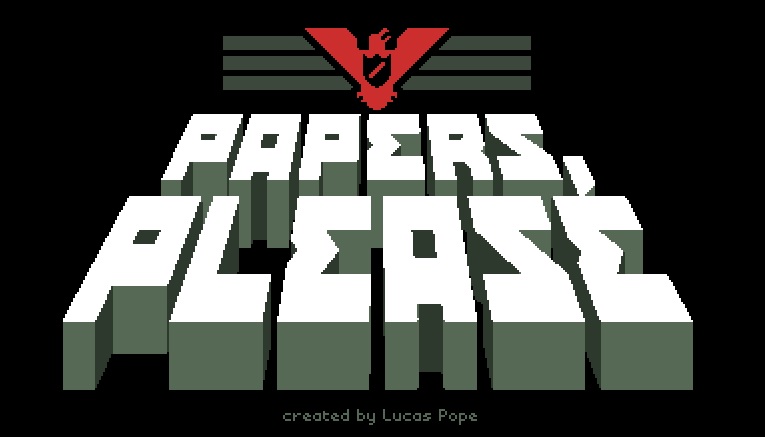Remember when I said that I don’t think games can be considered as hypertext narratives? Well, I’ve changed my mind to, ” it’s possible but it really depends on the game itself” after recalling another game called Papers Please that I played during the holidays which is, by the way, the most emotionally inducing game I’ve ever played. This game can seriously make you feel bad or good about your decisions.
Anyway, I’ll just give a brief intro about it before I begin. You play as an immigrant officer so you have the power to permit entry to foreigners. The thing is, you can choose to either faithfully follow your government’s laws and be a good citizen, or be a kind Samaritan by breaking some of them while trying to be a good citizen, or be one of the underdogs, or other possible things. You also have a family to take care of, and your wages (which aren’t very high) depends on the number of people you allow to enter the country. There are many different story paths that lead to different endings, and they are all based on your decisions. *Incoming Spoiler Alert*
Like when your family dies, it’s because you decided too slowly on who to let in and thus you get lower wages which results in having not enough money to feed them.
In this game, you are the faceless and nameless protagonist. There are no words to narrate who you are and what you’re thinking because you are the one who will fill in the narrative. Or something like that.
Following up on the example I used which was Mario and also as a response to Adrian’s pingback, I thought a lot more about it and realized that Mario was exactly like my first point. If the game play was good, then having Peach in the game shouldn’t be necessary. I mean, to be honest, when I played the game I cared jack squat about her but I continued to play it because it was fun.
So, why did the developers decide to have her there anyway? The answer that I came up with, was that it probably helped them move the game along and to give a reason for why Mario was doing what he does, like going to each castle and defeating Bowser’s decoys.
This clears up my second point. The narrative becomes an element of the game but instead of motivating the player, perhaps it motivated the developer to think “what’s the next step?”
